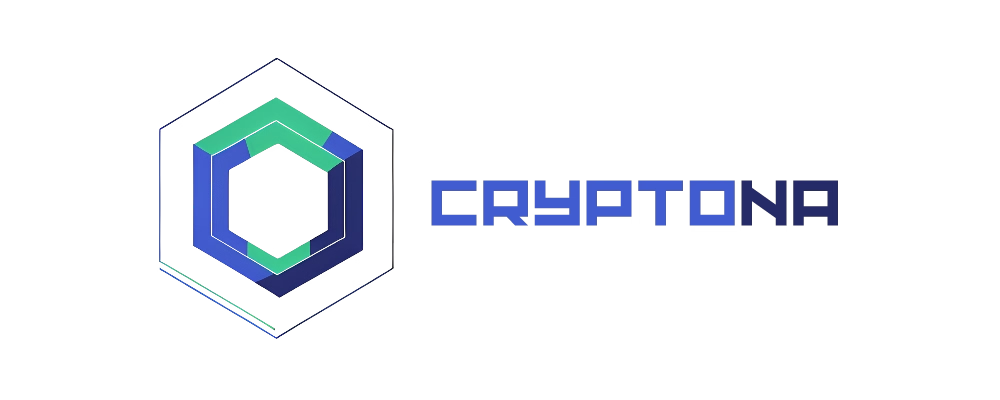The Promise of a Decentralized Web
In a world where centralized platforms dominate the digital landscape, control over our data, identity, and access is increasingly governed by a handful of tech giants. But what if we could rebuild the internet from the ground up — one that’s open, tamper-proof, and fully decentralized? That’s exactly the bold mission of the Internet Computer (ICP).
Developed by the DFINITY Foundation, the Internet Computer isn’t just another blockchain. It’s a powerful, next-generation protocol that allows developers to build full-stack applications — not on centralized cloud infrastructure, but entirely on-chain. Social networks, DeFi apps, enterprise software, and even AI models can all run directly on the blockchain with web-speed performance. No servers. No middleware. No censorship.
Since its inception, ICP has faced both intense skepticism and passionate support. Yet recent strides in AI integration, Bitcoin interoperability, and network scalability have reignited interest in the project. With growing developer adoption and critical upgrades like increased subnet storage and trustless Bitcoin DeFi, the future is starting to look a lot more decentralized — and ICP is leading that charge.
This comprehensive guide dives into the latest developments in ICP’s ecosystem and provides a realistic, data-backed price forecast from 2025 to 2030. Whether you’re an investor, developer, or simply curious about the evolution of Web3, this deep dive is your roadmap through the digital frontier.
What is Internet Computer (ICP)?
Internet Computer (ICP) is a decentralized blockchain network designed to act as a general-purpose cloud platform — but without the cloud. It’s built to replace the traditional IT stack with an open protocol where developers can create fully decentralized applications that scale efficiently, cost less, and are secure by design.
The main idea behind ICP is revolutionary: extend the public internet so that it can host software, not just transfer data. That means any kind of backend logic — from payment processing to machine learning — can be performed entirely on the Internet Computer, without centralized servers or databases.
The architecture relies heavily on advanced cryptography, including a groundbreaking innovation called Chain-Key Cryptography. This enables the network to scale horizontally, maintain consensus, and validate transactions at internet speed.
- Canister smart contracts: The core computational unit on ICP, capable of holding both logic and state.
- Network Nervous System (NNS): Autonomous governance system that upgrades and manages the entire network.
- Web3-native internet services: From games and finance to messaging apps, all hosted on-chain.
ICP aims to be more than an Ethereum alternative or L1 chain. It wants to redefine how the internet itself functions — removing the middlemen and restoring user ownership at scale.
DFINITY Foundation and the Vision Behind ICP
The organization behind the Internet Computer is the DFINITY Foundation, a non-profit based in Zurich, Switzerland. Led by founder and chief scientist Dominic Williams, the foundation consists of over 250 team members worldwide, including cryptographers, engineers, researchers, and growth strategists.
Their goal is to push the boundaries of what’s possible with decentralized systems. By addressing scalability, cost, and developer experience — three core pain points of today’s blockchain ecosystem — DFINITY aims to make building on blockchain not just possible, but practical for mainstream applications.
Unlike most blockchains which merely handle transactional data, ICP supports running entire backend logic, database storage, and real-time interactivity natively on-chain. It’s this full-stack approach that sets the Internet Computer apart from Ethereum, Solana, and other general-purpose blockchains.
As of 2025, the DFINITY Foundation has launched several impactful initiatives including:
- Caffeine: A decentralized AI platform powered by canisters
- ICP Hub Global: Regional developer communities for education and adoption
- Bitcoin and Ethereum integration: Seamless interoperability for decentralized finance
ICP’s Core Innovations: Chain-Key Cryptography and Canisters
ICP’s foundation is built on a unique technology called Chain-Key Cryptography. It’s a novel breakthrough that allows a single public key to represent the entire network. This enables external users (even web browsers) to verify responses from the blockchain without needing to store a full copy of the chain or wait for extensive confirmation times.
This is paired with the idea of canister smart contracts, which are much more powerful than typical Ethereum-style contracts. Canisters encapsulate both the logic and state, operate with nearly unlimited memory, and auto-scale across nodes.
Key advantages of ICP’s architecture:
- Web speed: Sub-second query times and fast finality for transactions
- Scalability: Automatically distributes workload across subnets
- Decentralized governance: NNS voters decide upgrades and protocol rules
- No cloud dependency: Apps live entirely on the blockchain, no AWS needed
With these tools, developers can build Web2-quality apps with Web3 transparency and immutability — unlocking a new class of decentralized applications.
Recent Developments Fueling ICP’s Momentum
2025 has been a banner year for Internet Computer. Several key announcements and upgrades have strengthened its position in the Web3 ecosystem:
1. Subnet Storage Upgrade: 2 TiB Capacity
Previously limited by smaller data thresholds, ICP has now doubled its subnet storage capacity to 2 terabytes per subnet. This is a monumental improvement that enables hosting large applications such as AI models, media-heavy platforms, or enterprise software without sacrificing decentralization.
Impact: More robust dApps, better developer experience, and massive support for AI-based services.
2. Native Bitcoin DeFi Integration
Through its proprietary chain-key cryptography, ICP now supports native Bitcoin within its network — no bridges, no wrapping. This integration enables Bitcoin holders to participate in DeFi activities like lending, yield farming, and trading directly from their wallets.
Impact: Unlocks billions in BTC liquidity and places ICP at the heart of the “Internet of Blockchains.”
3. AI and Web3 Merge: Caffeine AI
DFINITY launched Caffeine, a decentralized platform to train and deploy AI models directly on the blockchain. This removes reliance on centralized servers like AWS, ensuring AI tools can operate transparently and without censorship.
From chatbots to real-time analytics engines, Caffeine is ICP’s answer to the growing demand for decentralized AI infrastructure.
Impact: Positions ICP as a future leader in decentralized AI compute and aligns perfectly with regulatory and ethical concerns around centralized AI systems.
ICP Price Forecast (2025 – 2030)
Predicting the future value of any cryptocurrency is never an exact science — especially in a volatile space like blockchain. However, by analyzing current trends, technological upgrades, market cycles, and institutional behavior, we can build plausible price projections for ICP from 2025 to 2030.
Here’s a data-backed forecast summarizing the expected growth trajectory of ICP over the next five years:
| Year | Potential Low (USD) | Average Price (USD) | Potential High (USD) | Key Catalysts |
|---|---|---|---|---|
| 2025 | $4.40 – $6.63 | $12.94 – $13.75 | $18.43 – $21.50 | AI adoption, Web3 apps, bullish crypto cycle |
| 2026 | $6.20 – $8.90 | $15.50 – $17.80 | $25.00 – $30.00 | Post-halving growth, developer expansion |
| 2027 | $9.50 – $12.00 | $22.00 – $25.00 | $35.00 – $42.00 | Enterprise adoption, decentralized data storage |
| 2028 | $15.00 – $18.50 | $35.00 – $40.00 | $55.00 – $65.00 | Mature AI models, ecosystem boom |
| 2029 | $22.00 – $28.00 | $48.00 – $55.00 | $70.00 – $85.00 | Cross-chain dominance, mainstream use |
| 2030 | $30.45 – $48.67 | $66.89 – $88.88 | $100+ | Decentralized internet realized, cloud disruption |
ICP Price Outlook for 2025: A Pivotal Year for Adoption
The year 2025 could serve as the breakout year for Internet Computer (ICP), both in terms of price and technological traction. With the crypto industry likely experiencing the tailwinds of a post-Bitcoin halving bull market, projects with strong fundamentals — like ICP — are positioned to shine. The projected price range for ICP in 2025 is between $12.94 and $21.50, with optimistic scenarios possibly pushing it higher depending on adoption milestones.
One of the most significant driving forces this year is ICP’s strategic positioning in the emerging decentralized AI market. The launch and growth of its Caffeine AI platform give developers the ability to train and deploy models directly on-chain, bypassing traditional cloud systems. If this platform gains traction, ICP could become the go-to blockchain for AI services in Web3 — a huge leap in both utility and investor perception.
Also important is the native Bitcoin DeFi support. By offering true interoperability with Bitcoin through chain-key cryptography (without bridges), ICP unlocks a massive new liquidity pool. This innovation directly appeals to BTC holders seeking yield without compromising security.
From a technical standpoint, key resistance levels to monitor are $10-12 and $15-18. If the ICP token breaks and sustains above these, it would likely trigger a strong upward rally, particularly as more institutional and retail investors begin to understand its unique architecture and long-term potential.
Developer activity is expected to surge during this period as well, thanks to ongoing grants from the DFINITY Foundation and a growing global network of ICP Hubs. If ecosystem growth aligns with these technical and fundamental indicators, 2025 could mark the beginning of a multi-year upward trajectory for ICP, pushing it toward the $18–$21 price band and potentially setting a new all-time high.
ICP in 2026: Consolidation and Ecosystem Growth
After the excitement of 2025’s bullish momentum, the crypto market could enter a natural consolidation phase in 2026 — and ICP is likely to mirror this trend. However, this is not a sign of weakness but a necessary cooling-off period that lays the groundwork for future expansion. In this scenario, analysts expect ICP to fluctuate between $8.90 and $30.00, with an average range of $15.50 – $17.80.
The focus this year will be on solidifying the ecosystem. Several decentralized applications are projected to graduate from MVP to mainstream products. Think decentralized social media, decentralized games with AI integration, enterprise tools for data governance, and more. This will lead to greater real-world utility for ICP tokens as canisters require cycles (paid in ICP) to operate on the network.
Moreover, ICP’s developer tooling will likely be significantly enhanced in 2026. The release of next-gen SDKs, improved documentation, and robust integration with traditional Web2 tools will attract a wider developer base. If DFINITY succeeds in onboarding talent from traditional tech sectors, ICP’s developer ecosystem could explode in size.
On the AI side, expect to see more complex, autonomous canisters capable of not just inference, but also training AI models in a decentralized manner. The second generation of Caffeine may support marketplace features, collaborative model building, and even decentralized compute marketplaces. These advancements will enhance both the narrative and the technical value of ICP.
Critical support levels for 2026 sit around $8–10. Holding above these during any macro pullbacks would demonstrate resilience and could pave the way for another strong bull run in the following years. The high-end projection of $30 would reflect deep ecosystem maturity and user adoption.
ICP 2027 Forecast: The Rise of Enterprise Decentralization
In 2027, the decentralized web narrative is likely to evolve into a more enterprise-focused reality. Businesses — particularly those in regulated industries — will increasingly seek out platforms that offer verifiable computing, censorship resistance, and data sovereignty. ICP stands to benefit immensely from this shift.
This year, the Internet Computer could be priced between $22.00 and $42.00, driven by widespread adoption of its decentralized compute and storage capabilities. More Fortune 500 companies may begin experimenting with or actively using ICP for handling sensitive workloads — especially those requiring high security, auditability, and uptime guarantees.
Expect decentralized versions of traditional enterprise software to begin emerging. These might include ICP-native alternatives to Slack, Google Docs, and even Salesforce-style CRMs. If DFINITY and its developer community can onboard enterprise clients by offering compelling dApp suites and services, the ICP token will gain significant traction as the utility behind these services.
Another development to watch is the evolution of cross-chain apps. The idea of an “Internet of Blockchains” becomes more tangible this year. ICP’s seamless integration with Bitcoin and Ethereum can fuel decentralized finance products that span multiple chains — all hosted securely and scalably on the Internet Computer.
Technically, if ICP clears the $28–32 resistance zone, it opens the path to a climb toward $35–42. As narratives shift from speculation to actual enterprise adoption, price growth will be based more on value delivered rather than hype cycles alone. This could be the year ICP truly proves itself as a cloud 3.0 platform.
2028 Price Forecast: Web3 AI Matures on ICP
2028 may be a transformative year not just for ICP, but for the entire crypto space. The broader ecosystem will likely be preparing for the next Bitcoin halving, injecting renewed optimism and liquidity into the market. For ICP, the key narrative in 2028 will revolve around the convergence of AI and decentralized web services.
Forecasted prices range from $35.00 to $65.00, with major support expected in the $25–30 region. By this time, Caffeine AI could become one of the most widely used decentralized AI platforms in Web3 — complete with user-friendly UIs, AI DAOs, and incentive mechanisms that reward data providers and model trainers directly in ICP tokens.
More importantly, dApps launched in 2025–2026 may now be scaled, fully functional platforms with tens or hundreds of thousands of users. Web3 social networks, decentralized video platforms, and AI-native business tools may be thriving in the ICP ecosystem. This will drive increased network usage, leading to consistent demand for ICP tokens to power compute and storage cycles.
Another exciting development could be cross-subnet canisters allowing for seamless execution of large-scale applications across multiple subnets. This horizontal scaling will mark a turning point in demonstrating that a blockchain can actually host applications at web-scale — something no other L1 blockchain has achieved.
ICP reaching $55–$65 in 2028 would reflect its growing role in hosting mission-critical applications. It would also indicate increased confidence in ICP’s value proposition: not just decentralization, but decentralization that works at scale.
ICP Price Forecast for 2029: The Internet of Blockchains Becomes Reality
By 2029, the crypto ecosystem will likely undergo another major transformation — one where cross-chain interoperability is no longer an experimental feature but a foundational industry standard. This is precisely where the Internet Computer is designed to excel. As blockchains begin to operate like interconnected digital nations, ICP’s role as a decentralized hosting and coordination layer becomes even more essential.
Price projections for this year fall between $48.00 and $85.00, with bullish scenarios showing potential moves above $70 as psychological resistance gives way. The key driver behind these numbers is the widespread adoption of ICP’s Chain-Key integration with Bitcoin and Ethereum. This technology enables the creation of fully trustless cross-chain dApps that don’t rely on bridges — an innovation that could reshape DeFi by eliminating long-standing security vulnerabilities.
Imagine decentralized exchanges that process Bitcoin, Ethereum, ICP, and other assets natively; lending protocols that use cross-chain liquidity without wrapping tokens; or payment channels operating entirely on ICP canisters. These use cases transform the Internet Computer into a hub where users and developers don’t have to compromise between security and interoperability.
Moreover, the rise of decentralized AI continues to fuel ICP’s growth. By 2029, Caffeine AI and similar platforms could become the backbone of digital infrastructure used across industries like finance, supply chain, cybersecurity, and digital identity. As enterprises increasingly incorporate these decentralized AI tools into their workflows, ICP’s compute demand will naturally rise.
The price reaching the $70–$85 band would signal that ICP is no longer a speculative asset but a core utility token powering vital digital services. Breaking above these levels would validate the long-term vision of ICP as a decentralized alternative to the cloud, capable of hosting massively scalable and multi-chain applications.
ICP Price Prediction for 2030: Challenging Cloud Giants and Redefining the Web
By 2030, the digital landscape may look radically different from today. With AI systems managing everyday operations, on-chain identities becoming mainstream, and decentralized governance playing an increasing role in global digital infrastructure, the Internet Computer could evolve into one of the most important protocols of the next decade.
Long-term forecasts suggest ICP could trade between $66.89 and $100+, with ultra-bullish scenarios breaking well above the triple-digit mark. The $100 level is not only a psychological barrier but also a technical milestone representing full recognition of ICP’s value in powering a decentralized internet.
This year may mark the point where traditional cloud services — AWS, Google Cloud, and Microsoft Azure — face their first substantial competition from decentralized alternatives. ICP offers a value proposition that centralized providers can’t match: tamper-proof infrastructure, transparent compute, verifiable AI, and trustless applications.
Government agencies, multinational corporations, financial institutions, and massive data-driven companies could begin integrating ICP-based systems into their core operations. This includes decentralized identity management, cross-border data handling, tokenized financial services, privacy-first AI tools, and more.
Another major milestone could be widespread adoption of AI DAOs (Decentralized Autonomous Organizations) running entirely on ICP canisters. These AI entities may automate business processes, manage digital assets, or provide decision-making capabilities without relying on centralized servers.
If these visions materialize, the $100+ valuation becomes conservative. ICP would be positioned not as a competitor in the L1 blockchain category but as a foundational layer for the future global digital economy. In short, 2030 could be the year ICP stops being “just a blockchain” and becomes a core component of the new internet stack.
Institutional Interest and Regulatory Environment
Institutional interest in ICP continues to grow, especially as enterprises explore decentralized hosting solutions. The Internet Computer offers a compliant-ready framework with deterministic execution, transparent governance via the NNS, and predictable fee structures — all highly desirable features for regulated entities.
While global crypto regulations may tighten, ICP’s ability to provide auditable, secure, and decentralized infrastructure positions it favorably. Governments and corporations looking to reduce reliance on centralized tech giants may increasingly consider ICP as a viable alternative.
Potential institutional catalysts include:
- Partnerships with Fortune 500 companies
- Enterprise-level decentralized AI deployment
- Government adoption for secure data management
- Integration with global payment networks
If these drivers come into play, ICP’s utility — and, by extension, its price — will continue rising sustainably over the decade.
Long-Term Investment Potential
The Internet Computer stands out due to its unique architecture and ambitious vision. While many blockchains aim to offer decentralized finance or smart contract execution, ICP aims to reinvent the internet. This makes it one of the most distinctive and potentially transformative crypto projects of the decade.
Pros:
- True decentralized backend infrastructure
- Native Bitcoin and Ethereum integrations
- Decentralized AI compute (Caffeine)
- Scalability with low-cost cycles
- Strong developer growth and ecosystem expansion
Cons:
- High competition from emerging L1 chains
- Possible regulatory hurdles for blockchain-based AI
- Market volatility and early-stage adoption challenges
Still, ICP’s combination of cloud disruption, decentralized AI, and cross-chain dominance makes it one of the most compelling long-term bets in the Web3 space.
Conclusion
Internet Computer (ICP) is not just another cryptocurrency — it’s an ambitious attempt to rebuild the internet in a decentralized, secure, and scalable way. With powerful innovations like chain-key cryptography, AI canisters, and native Bitcoin DeFi, ICP stands at the forefront of Web3 technology.
From $12–$21 in 2025 to a potential $100+ by 2030, the road ahead for ICP is filled with opportunity. If its vision continues to manifest — decentralizing cloud infrastructure, enabling verifiable AI, and powering multi-chain ecosystems — then ICP may become one of the defining digital assets of the decade.
As the world increasingly seeks transparency, decentralization, and user-owned data systems, the Internet Computer’s role in shaping the future becomes not only possible — but inevitable.
FAQs
1. Will ICP reach $100 by 2030?
Yes, projections suggest ICP could surpass $100 as decentralized AI and multi-chain services mature.
2. What makes ICP different from Ethereum?
ICP hosts full-stack dApps (frontend + backend) entirely on-chain, something Ethereum cannot natively support.
3. Is ICP good for long-term investment?
With its unique architecture, growing adoption, and AI integrations, ICP has strong long-term potential.
4. Can developers build Web2-style apps on ICP?
Absolutely. ICP allows hosting full web applications — websites, games, social platforms — without centralized servers.
5. Does ICP support Bitcoin?
Yes. ICP integrates Bitcoin natively using chain-key cryptography, enabling trustless BTC DeFi without bridges.






















Leave a Reply